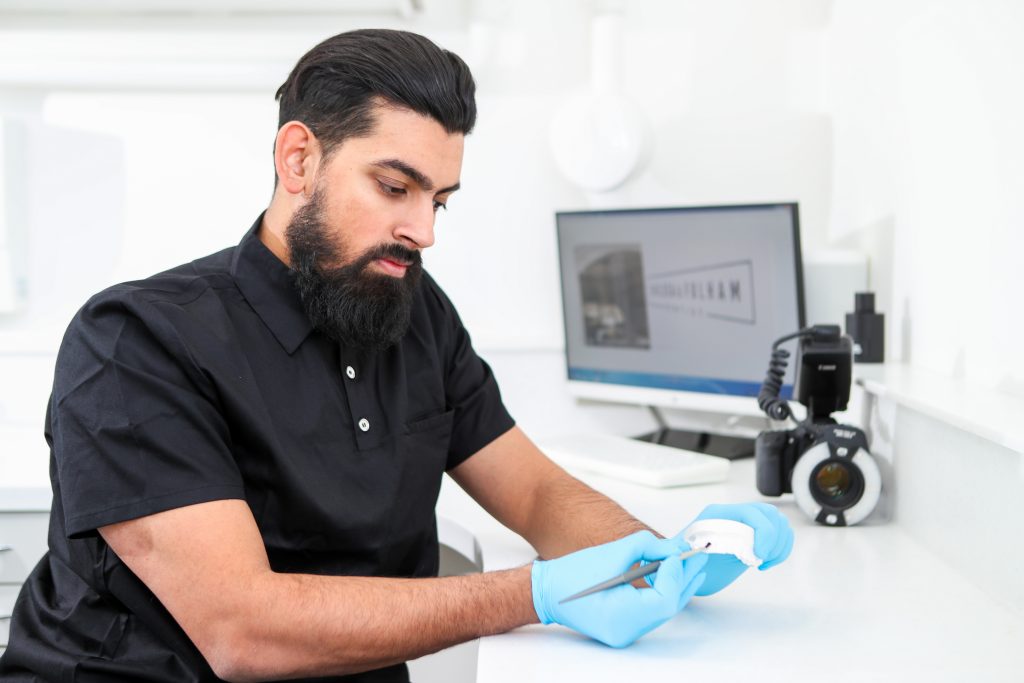
Like with anything else in life, in demand dentistry definitely follows trends. A decade ago, I would never have imagined a patient emailing to specifically enquire about ‘Composite Bonding’. Yet we find ourselves in times where most patients do opt to email over calling and composite bonding is very much the talk/type of the town.

Composite bonding and porcelain veneers are 2 different approaches that can help improve your smile. Most cosmetic dental corrective procedures work by improving the shape and/or size of teeth, to make them more harmonious within the face. The two aforementioned techniques can be used to address both these issues.
So, what is the difference? Porcelain veneers are thin shells of porcelain that are custom made in a lab to fit directly over your teeth, often referred to as a ‘fake nail’ for teeth. With composite veneers or composite bonding, a tooth coloured filling material is applied in layers to the tooth surface and sculpted directly in your mouth to achieve the desired end result.

Composite veneers vs Porcelain
- Porcelain veneers resist staining, unlike composite veneers, which tend to discolour and stain over time. Although with modern materials this is minimal, it is still something to consider as they require maintenance.
- Porcelain veneers cannot be easily repaired. If a porcelain veneer cracks, it must be replaced. Composite veneers can be repaired by your dentist in most cases.
- Porcelain veneers are more durable and can last upto 15 years if care and maintenance is taken. Composite veneers will need to be replaced more frequently, as the resin material used is not as strong as porcelain and not as aesthetically stable in the long term.
- Porcelain veneers are more of a financial upfront commitment in comparison to composite veneers. However, this initial saving with composites does not take into account the more frequent need for maintenance and replacement long term.
- Porcelain veneers are made in an outside dental laboratory and therefore require at least two visits to prepare and complete. Composite resin veneers can be accomplished in one visit, chair side, by a dentist.
- Porcelain veneers require removal of some of the tooth surface or ‘preparation’. These are irreversible changes to the tooth structure. Composite veneers bond directly on to the tooth surface and are therefore less damaging to the tooth.

If you would like to know more about composite bonding and porcelain veneers, please contact us on 02030801000, email mail@cfdentist.co.uk , book virtual consultations or face to face consultations here via the website.


